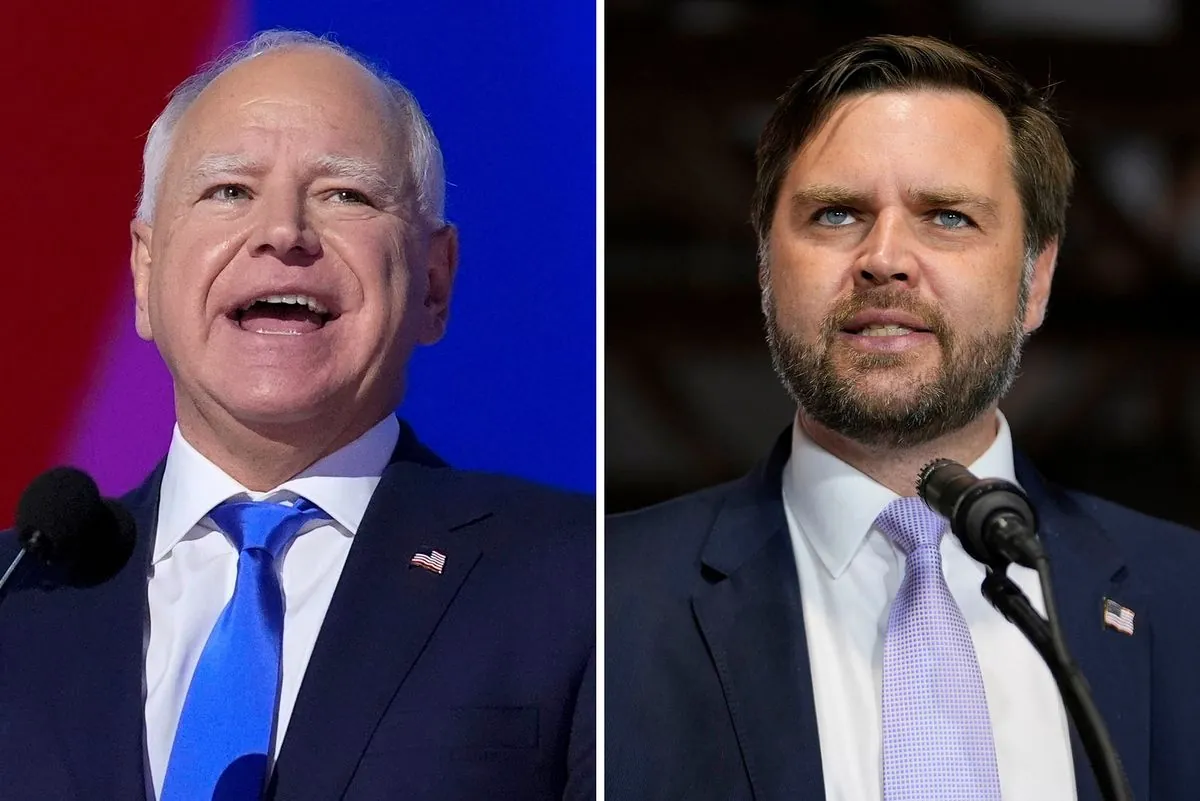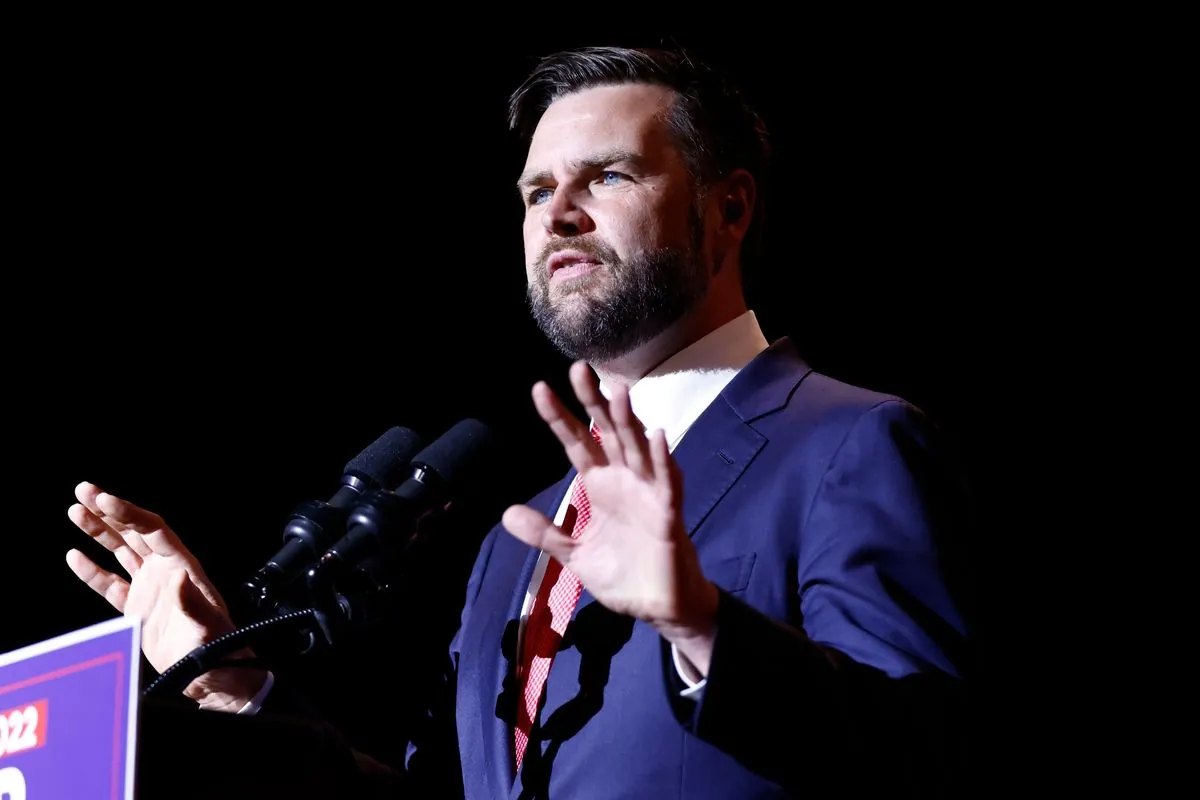Microphone Muting Sparks Controversy in Vice-Presidential Debate
During a vice-presidential debate, JD Vance's microphone was muted amid a dispute over fact-checking. The incident has ignited criticism from Republicans and raised questions about debate rules.

On October 1, 2024, a vice-presidential debate between JD Vance and Tim Walz became the center of controversy when Vance's microphone was muted during a dispute over fact-checking. The incident occurred as the candidates discussed immigration issues in Springfield, Ohio.
JD Vance, an American politician, author, and venture capitalist representing the Republican Party, and Tim Walz, the 41st governor of Minnesota serving since 2019 for the Democratic Party, were engaged in a heated exchange about Haitian immigrants in Springfield, the county seat of Clark County, Ohio.
The debate took an unexpected turn when moderator Margaret Brennan, the current host of Face the Nation on CBS News, attempted to clarify the legal status of Haitian migrants in Springfield. Brennan stated, "Springfield, Ohio, does have a large number of Haitian migrants who have legal status, temporary protected status."
This clarification prompted a rebuke from Vance, who argued that the moderators were not supposed to fact-check during the debate. As Vance attempted to explain his position, his microphone volume noticeably decreased, leading Brennan to announce that the candidates' microphones had been cut.

The decision to mute the microphones quickly drew criticism from Republicans. Marjorie Taylor Greene, U.S. Representative for Georgia's 14th congressional district, expressed her disapproval on X (formerly Twitter), calling the action "DISGRACEFUL."
It's worth noting that CBS had warned about the possibility of muting microphones before the debate. This practice has become a topic of controversy in recent years, particularly in the context of presidential and vice-presidential debates.
The incident highlights the ongoing debate about the role of fact-checking in political discussions and the balance between allowing candidates to express their views and ensuring accurate information is presented to viewers. Temporary Protected Status (TPS), a temporary immigration status granted to eligible nationals of designated countries, has been a contentious issue in U.S. immigration policy.
This debate also brought attention to the complex nature of the U.S. immigration system, which involves various types of legal statuses and protections. The situation in Springfield, Ohio, reflects the broader national conversation about immigration and its impact on local communities.
Vice presidential debates have been a regular feature of U.S. presidential elections since 1976, serving as an important platform for candidates to present their views and engage in substantive policy discussions. However, the use of microphone control in debates has emerged as a point of contention in recent years.
The controversy surrounding this debate underscores the challenges of maintaining a balance between free expression and factual accuracy in political discourse. As the 2024 election season progresses, it is likely that these issues will continue to be at the forefront of public discussion.
"Gentlemen, the audience can't hear you because your mics are cut."
This incident serves as a reminder of the importance of clear debate rules and the need for transparency in the conduct of political events. As the United States approaches the 2024 presidential election, the role of debates in informing the public and shaping political discourse remains a crucial aspect of the democratic process.


































